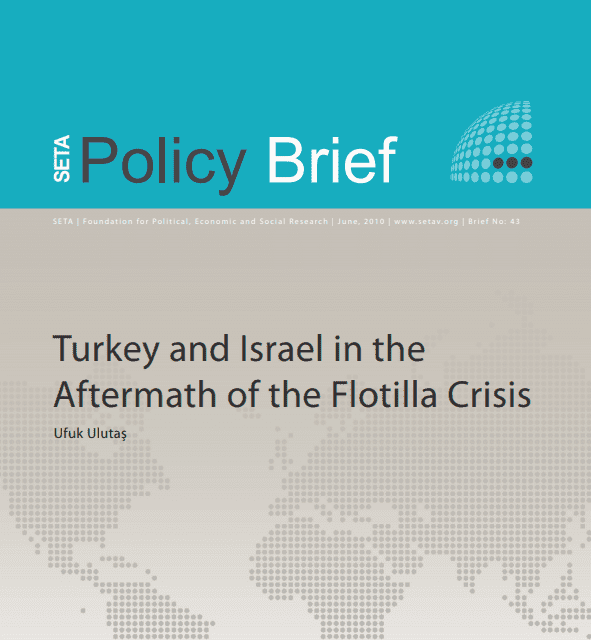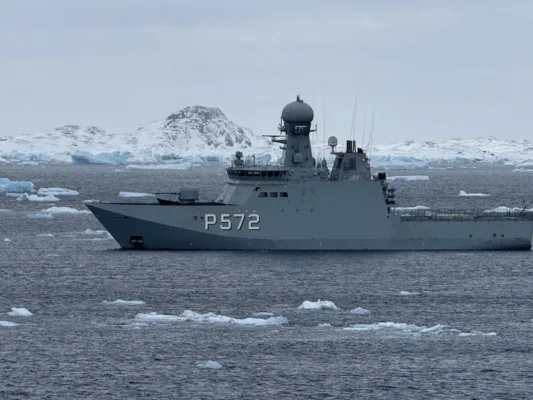Turkey and Israel in the Aftermath of the Flotilla Crisis

By Ufuk Ulutaş
SETA Policy Brief, No. 43, June 2010
The flotilla attack started a new trend for Turkish-Israeli relations. For the first time in history, Turkish citizens were directly exposed to Israeli aggression. In this sense, the attack constitutes a break in Turkish-Israeli relations. It is now not only Israel’s treatment of the Palestinians that will shape the nature of Turkish-Israeli relations, more than anything else, but it is Israel’s steps towards salvaging bilateral relations by reassuring the Turkish nation and state.
Since the early 2000’s, Turkey’s newly adopted vision for the Middle East, which targets political stability and economic integration in the region, started to openly clash with Israeli vision of the region that is characterized by isolation, fragmentation, and the sacrifice of international law for security concerns. The clashing visions for the region have put the two countries in a position where diplomatic crises are almost unavoidable. The latest flotilla attack or the previous chair crisis are merely the tip of the iceberg and are reflective of the two states’ divergent regional outlook and understanding of a lasting peace.
***
On May 31, 2010, Israeli commandos stormed a passenger ship, the Mavi Marmara, the largest boat of a flotilla of six boats which were carrying 10000 tons of humanitarian aid to besieged Gaza, in international high waters. The operation left 9 activists dead and over 30 activists wounded. The flotilla was carrying citizens from thirty-two countries, and among the passengers on the flotilla were European legislators, a Swedish best-selling author, Henning Mankell, and Nobel peace laureate Mairead Corrigan-Maguire. The Mavi Marmara is owned by a Turkish charity, IHH (Foundation for Human Rights and Freedom and Humanitarian Relief), and was carrying around six hundred passengers most of which are Turkish citizens. Following the military operation on the Mavi Marmara, the flotilla was docked at Ashdod port, the activists on board were detained, and Israel announced that the activist would be either arrested or deported.
The Israeli military assault against the Mavi Marmara immediately ignited worldwide protests and condemnation. Turkey, whose citizens were attacked by Israeli soldiers in international high waters, took the lead in protests and condemnation, and called for emergency meetings of the UN, NATO, and the OIC. Ankara strongly condemned Israeli aggression, calling it “state terrorism” and “an act which must be duly punished.” Ankara also called for an immediate release of its detained citizens, return of the dead and wounded passengers, an official apology from Israel, and an international and transparent investigation of the assault.
Israel, however, claims that the demonstrators on the Mavi Marmara attacked the IDF Naval commandos with light weaponry, such as knives and clubs, and the Israeli commandos were forced to react in an act of self-defense. Immediately after the assault, the Israeli Defense Forces (IDF) started a PR campaign and posted heavily edited short video clips, showing the clashes between the activists and IDF commandos, rappelling down to the Mavi Marmara. Tel Aviv asserts that the flotilla’s main sponsor, IHH, was directly supported by the current Justice and Development Party (JDP) government in Turkey. Furthermore, Israel claims IHH has close links with Hamas and even Al-Qaeda. Tel Aviv argues that the flotilla was a deliberate provocation against Israel and was not organized with the sole purpose of humanitarian relief. Tel Aviv also maintains that Israel already allows humanitarian aid into Gaza, and denies that a humanitarian crisis is taking place in Gaza, despite numerous reports and statements by international organizations.




















